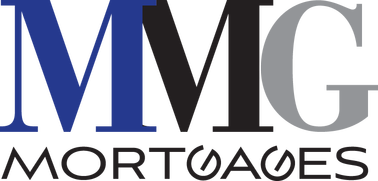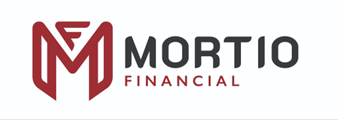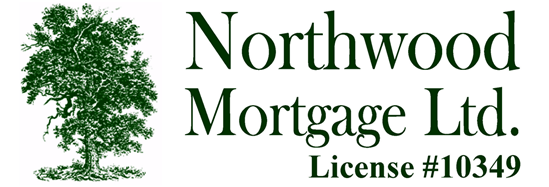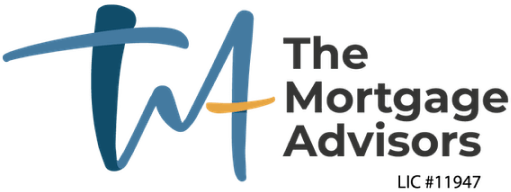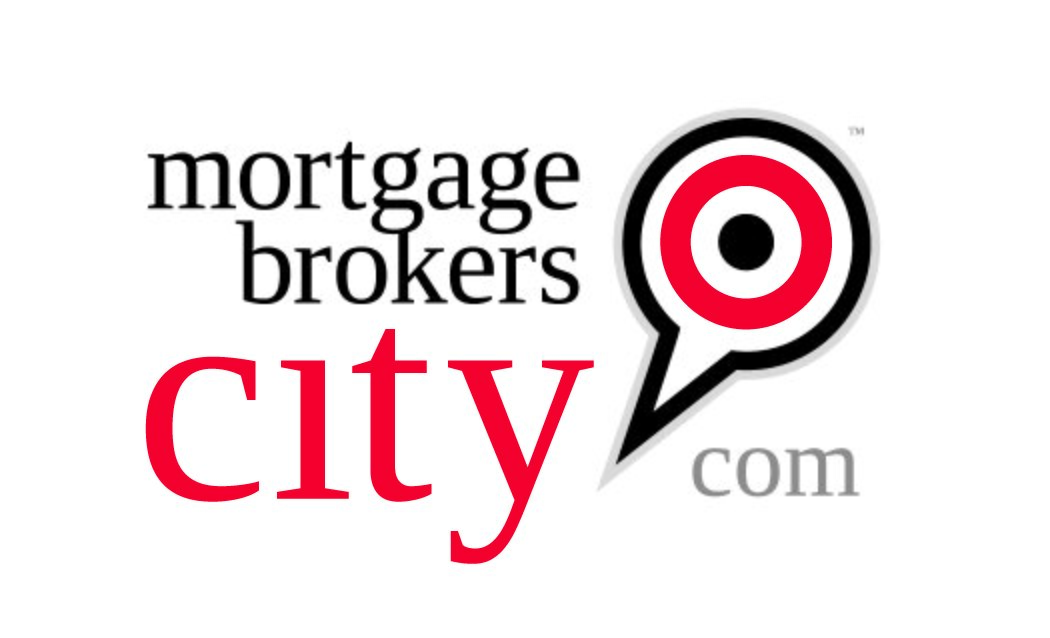Find the Best 1-Year Fixed
Mortgage Rates in Canada
Compare the latest 1-year fixed mortgage rates from major banks, credit unions and mortgage brokers.
Rates are based on a home value of $500,000
Rates are based on a home value of $500,000
Today's Best Mortgage Rates in Canada
Evaluate Canada's best 1-year mortgage rates in one place. RATESDOTCAs Rate Matrix lets you compare pricing for all key mortgage types and terms.
Rates are based on an. average mortgage of $500,000 and subject to change based on filter criteria
Updated 22:02 on Jul 11, 2025| Placeholder |
Insured
The rates in this column apply to borrowers who have purchased mortgage default insurance.
This is required when you purchase a home with less than a 20% down payment.
The home must be owner-occupied and the amortization must be 25 years or less.
|
80% LTV
The rates in this column apply to mortgage amounts between 65.01% and 80% of the property value. The home must be owner-occupied and have an amortization of 25 years or less. You must have purchased it for less than $1 million. These rates are not available on refinances. Refinances require "Uninsured" rates.
|
65% LTV
The rates in this column apply to mortgage amounts that are 65% of the property value or less. The home must be owner-occupied and have an amortization of 25 years or less. You must have purchased it for less than $1 million. These rates are not available on refinances. Refinances require "Uninsured" rates.
|
Uninsured
The rates in this column apply to purchases over $1 million, refinances and amortizations over 25 years. More info on the differences between insured and uninsured rates.
|
Bank Rate
Bank Rate is the mortgage interest rate posted by the big banks in Canada.
|
|---|---|---|---|---|---|
| 1-year fixed rate | 4.99% | 4.79% | 4.79% | 5.59% |
5.49%
|
| 2-years fixed rate | 4.04% | 4.34% | 4.34% | 4.54% |
4.79%
|
| 3-years fixed rate | 3.87% | 4.09% | 4.09% | 4.24% |
4.29%
|
| 4-years fixed rate | 4.09% | 4.15% | 4.15% | 4.44% |
4.39%
|
| 5-years fixed rate | 3.91% | 3.89% | 3.89% | 3.91% |
4.09%
|
| 7-years fixed rate | 5.19% | 5.00% | 5.00% | 5.19% |
5.00%
|
| 10-years fixed rate | 5.24% | 5.24% | 5.24% | 5.29% |
6.09%
|
| 3-years variable rate | 4.40% | 4.30% | 4.30% | 4.40% |
6.35%
|
| 5-years variable rate | 4.04% | 4.04% | 4.04% | 4.05% |
4.25%
|
| HELOC rate | N/A | N/A | N/A | N/A |
N/A
|
| Stress Test | 5.25% | 5.25% | 5.25% | 5.25% |
N/A
|
Today's Best Mortgage Rates in Canada
Evaluate Canada’s best mortgage rates in one place. You can compare the most current mortgage rates and monthly payments from 175+ banks and lenders across Canada.
Rates are based on an average mortgage of $500,000 and subject to change based on filter criteria.
| Lender
|
Insured
|
Insurable
|
Uninsured
|
|---|---|---|---|
|
MMG Mortgages
|
3.99%
$2,627.39 / month
|
4.19%
$2,681.85 / month
|
4.14%
$2,668.19 / month
|
|
Mortio Financial Corp
|
3.99%
$2,627.39 / month
|
4.24%
$2,695.56 / month
|
4.14%
$2,668.19 / month
|
|
Northwood Mortgage Ltd.
|
4.14%
$2,668.19 / month
|
4.24%
$2,695.56 / month
|
4.24%
$2,695.56 / month
|
|
Innovation Federal Credit Union
|
4.39%
$2,736.87 / month
|
4.39%
$2,736.87 / month
|
4.39%
$2,736.87 / month
|
|
True North Mortgage
|
2.99%
$2,363.66 / month
|
2.99%
$2,363.66 / month
|
2.99%
$2,363.66 / month
|
|
The Mortgage Advisors
|
3.87%
$2,594.98 / month
|
3.87%
$2,594.98 / month
|
3.87%
$2,594.98 / month
|
|
Nesto
|
3.91%
$2,605.76 / month
|
3.91%
$2,605.76 / month
|
3.91%
$2,605.76 / month
|
|
Hypotheca
|
3.94%
$2,613.86 / month
|
3.94%
$2,613.86 / month
|
3.94%
$2,613.86 / month
|
|
MortgagestoGo
|
3.94%
$2,613.86 / month
|
3.94%
$2,613.86 / month
|
3.94%
$2,613.86 / month
|
|
One Link Mortgage & Financial
|
3.95%
$2,616.57 / month
|
3.95%
$2,616.57 / month
|
3.95%
$2,616.57 / month
|
|
Sudbury Credit Union
|
3.99%
$2,627.39 / month
|
3.99%
$2,627.39 / month
|
3.99%
$2,627.39 / month
|
|
Monster Mortgage
|
3.99%
$2,627.39 / month
|
3.99%
$2,627.39 / month
|
3.99%
$2,627.39 / month
|
|
Northern Birch Credit Union
|
3.99%
$2,627.39 / month
|
3.99%
$2,627.39 / month
|
3.99%
$2,627.39 / month
|
|
The Police Credit Union
|
3.99%
$2,627.39 / month
|
3.99%
$2,627.39 / month
|
3.99%
$2,627.39 / month
|
|
City Wide Financial Corp
|
3.99%
$2,627.39 / month
|
3.99%
$2,627.39 / month
|
3.99%
$2,627.39 / month
|
|
Mainstreet Credit Union
|
3.99%
$2,627.39 / month
|
3.99%
$2,627.39 / month
|
3.99%
$2,627.39 / month
|
|
East Coast Mortgage Brokers
|
4%
$2,630.10 / month
|
4%
$2,630.10 / month
|
4%
$2,630.10 / month
|
|
Mortgage Brokers City Inc
|
4.04%
$2,640.95 / month
|
4.04%
$2,640.95 / month
|
4.04%
$2,640.95 / month
|
|
Prospera Credit Union
|
4.04%
$2,640.95 / month
|
4.04%
$2,640.95 / month
|
4.04%
$2,640.95 / month
|
|
First Credit Union
|
4.29%
$2,709.29 / month
|
4.29%
$2,709.29 / month
|
4.29%
$2,709.29 / month
|
|
First National Financial
|
4.34%
$2,723.07 / month
|
4.34%
$2,723.07 / month
|
4.34%
$2,723.07 / month
|
Jump straight to:
- What is a 1-year fixed mortgage rate?
- Why are 1-year fixed rates so popular?
- What causes changes in 1-year fixed rates?
- One-year Canadian bond yields vs. 1-year conventional mortgage rates
- How do major banks price 1-year mortgages?
- Pros and cons of 1-year fixed rate mortgages
- One-year fixed rate predictions
- One-year fixed mortgage tips
- Frequently asked questions about 1-year fixed rate mortgages
What is a 1-year fixed mortgage rate?
A mortgage with a locked-in interest rate, meaning the rate will not change during the term of the mortgage is known as a fixed-rate mortgage. A 1-year fixed rate mortgage is the mortgage rate that remains unchanged for a period of 12 months. The homeowner will not have to worry about changes in the overnight rates by the Bank of Canada for that one-year period or any changes in the economy that impact mortgage interest rates.
As per the Canada Mortgage and Housing Corporation (CMHC)’s Residential Mortgage Industry Report, the fixed-term lending rate has been lower than the variable rate since the third quarter of 2022. Moreover, since June 2022, federally regulated financial institutions have lent more funds for new and renewed mortgages under fixed-rate agreements than variable-rate agreements.
However, fixed-rate mortgages of 5 years or more are no longer the most popular option. Since September 2022, new and renewed mortgages under fixed-rate agreements between 3 and 5 years, and between 1 and 3 years have been borrowers’ preferred choice. Borrowers’ expectations that the policy interest rate will decrease from its 15-year high in the next few years, coupled with minimal rate differences between the different agreement lengths, are driving factors behind this shift.
Why are 1-year fixed rates popular?
One-year fixed mortgages are the shortest fixed-rate mortgages a prospective homeowner can get. Current 1-year fixed mortgages are popular for many reasons:
- The rates are usually lower than other terms.
- They're a good option for homeowners who don't expect to have a mortgage beyond 12 months.
- It allows for refinancing flexibility without penalty.
- Allows homeowners to capitalize on a falling interest rate environment: they can easily refinance if variable rates drop further the following year.
For the risk-averse person, a 1-year fixed mortgage rate in Canada allows a borrower to avoid the risk of a rate increase during the mortgage term. But there are risks, of course.
Suppose you have a $400,000 mortgage with a 25-year amortization schedule, and you take a 1-year fixed mortgage with an interest rate of 5.65%. A year passes, and now rates are 200 basis points higher. When your mortgage renews, your payments will increase by $472 or $118 per month per $100,000 borrowed.
Most Canadians choose longer terms (the most popular term is five years) and put up with a slightly higher rate to avoid such problems at renewal. The amount of paperwork that accompanies new mortgage negotiations is also inconvenient for most.
What causes changes in 1-year fixed rates?
One-year fixed mortgage rates in Canada, like all interest rates, follow government bond yields, except in this case, they follow 1-year government bond yields.
Bond yield is a way of measuring the annual return on a bond investment. A bond's yield is expressed as a percentage. At the time of issuing, each bond comes with a face value and a fixed amount of interest amount that it pays, known as its coupon rate. Then when bonds are bought and sold on the open market, they may sell for above or below the face value.
Banks are quicker to raise their fixed mortgage rates and slower to lower them in relation to bond yield movements. They can’t be too reactive to changing market conditions if they're to remain solvent.
One-year Canadian bond yields vs. 1-year conventional mortgage rates
As inflation has steadily risen, so have interest rates. As a result, bond yields have been steadily climbing since late spring 2022.
Bond prices have an inverse relationship with mortgage interest rates. As bond prices increase, mortgage interest rates go down and vice versa. This is because mortgage lenders tie their interest rates closely to Treasury bond rates.
When bond interest rates are high, as they are becoming now, the bond is less valuable on the secondary market. This causes mortgage interest rates to rise. The value of each bond goes up when bond interest rates fall again. This causes mortgage lenders to lower their rates. However, we are still in a situation of rising interest rates and bond yields for the time being.
| Date | 1-year conventional mortgage rate | 1 - 3 year Government of Canada marketable bonds (average yield) |
|---|---|---|
| 1/2/2019 | 3.64 | 1.85 |
| 1/1/2020 | 3.64 | 1.68 |
| 1/6/2021 | 3.09 | 0.18 |
| 1/5/2022 | 2.79 | 1.01 |
| 4/20/2022 | 3.09 | 2.51 |
| 6/1/2022 | 3.79 | 2.74 |
| 7/13/2022 | 4.74 | 3.27 |
| 9/7/2022 | 5.19 | 3.57 |
| 10/26/2022 | 6.09 | 3.87 |
| 12/7/2022 | 6.09 | 3.74 |
| 1/25/2023 | 6.34 | 3.74 |
| 3/8/2023 | 6.34 | 4.25 |
| 4/12/2023 | 6.29 | 3.75 |
| 6/7/2023 | 6.94 | 4.54 |
| 7/12/2023 | 7.69 | 4.62 |
| 9/6/2023 | 7.89 | 4.66 |
| 10/18/2023 | 8.09 | 4.93 |
How do major banks price 1-year mortgages?
All fixed-rate mortgages are influenced by the bond market. Mortgage lenders invest in bonds and mortgages for profit. The profits are then recycled to purchase more bonds and issue more mortgages. Here's a list of the sources lenders rely on to finance mortgages:
- Bank deposits
- Mortgage-backed securities
- Deposit notes
- Canada mortgage bonds
- Covered bonds
- Five-year swaps
- Investor purchases
To figure out the interest amount to charge on a fixed-rate mortgage, lenders look to the interest they're earning on bond investments.
The government bond market in Canada broadly dictates fixed-rate mortgage rates. A five-year fixed rate, for instance, will track the five-year Government of Canada bond.
When bond yields rise, so do fixed-mortgage rates.
In the two years following the emergence of the COVID pandemic, Canada's economy expanded beyond economists' expectations. Consumer demand for goods (including houses) was overwhelming, causing inflation to rise. In 2022, the Bank of Canada began an aggressive rate increase strategy to help bring down demand and inflation.
The Bank of Canada's decision to raise overnight rates led to a rapid surge in bond yields. As the bank drove up the cost of borrowing, the interest paid on bonds began going up, and mortgage rates quickly followed.
This was a stark reversal from late 2020 to early 2021, when bond yields and, conversely, mortgage rates bottomed. Mortgage lenders offered some of the lowest mortgage rates in history during this period.
Inflation is expected to decrease gradually due to higher policy interest rates and rising long-term bond yields, which are dampening demand.
Several factors contribute to the rise in long-term bond yields, including increased real yields, a rising term premium, fiscal deficits, and changes in the neutral interest rate.
The Bank of Canada’s monetary policy tightening has also affected global financial markets, potentially impacting equity and asset prices, which, in turn, can influence investment and consumption, both domestically and internationally.
The Bank of Canada has increased interest rates 10 times since March 2022, leading to a slowdown in mortgage credit growth and reduced demand for housing and big budget items, resulting in a 33% drop in housing resales and a 10% decrease in house prices since February 2022.
Concisely, prices are going down a bit, it's more expensive to borrow money, and the housing market isn't as hot as it used to be. This is all because of actions taken by the government to control the economy.
Pros and cons of 1-year fixed rate mortgages
Advantages of a 1-year fixed mortgage
Here's the upside to choosing a 1-year fixed mortgage:
- Lower rates compared to longer terms: Shorter terms often offer better pricing than longer terms. In the case of one-year rates, they can be a decent discount compared to two and three-year terms. They're also a great alternative to a floating rate when variable discounts are small by comparison, as was the case in the spring and summer of 2020.
- Less chance of paying prepayment penalties: For those unsure about their near-term life plans, locking into a longer fixed term can result in significant penalties should you break your mortgage early. With a one-year term, the odds of needing to break your mortgage before the end of the term are significantly reduced.
- Good for those who only need a short-term mortgage: A one-year term can be ideal if you only need a mortgage for roughly 12 months. Typical examples include property flips, credit rehabilitation and people with short remaining amortizations.
- Those who expect rates to fall within 12 months: A 1-year fixed mortgage can be a great interim solution for borrowers who expect mortgage rates to fall in the next year. A one-year term allows them to shop the market in just 12 months. This is especially useful when variable-rate discounts are historically small.
Cons of a 1-year fixed mortgage:
The following are some of the potential drawbacks of choosing a 1-year fixed mortgage:
- Little protection against rate hikes: If rates jump, you're not protected as you would be with a longer fixed term.
- Renewal hassle: Many people choose slightly higher rates for a longer term, such as the five-year mortgage, to avoid the perceived hassle of renewing their mortgage annually. A one-year term may be a good one-off option depending on your circumstances, but choosing one-year terms regularly can indeed become a headache at renewal time.
- Switching costs: If you opt for short terms such as the 1-year fixed— particularly for consecutive terms — you are more likely to face switching costs if you frequently change lenders.
One-year fixed rate predictions
If you want to try and guess the trend for 1-year fixed rates, you can watch Canada's 1-year Treasury bill yield.
Note that this doesn't yield a forecast for future rates, but over the long term, 1-year fixed rates track the 1-year Treasury bill yield fairly closely.
According to the Bank of Canada, the long-term bond yields have increased sharply since July 2023, and the higher levels are expected to persist in the coming months. Monetary policy is tight in most advanced economies, and bond yields have risen sharply in recent weeks, reaching levels not seen since before the 2008-2009 global financial crisis.
If the increase in yields proves to be larger or more persistent than expected, equity and other asset prices could be negatively impacted further. This, in turn, would weigh on investment and consumption both abroad and in Canada.
One-year fixed mortgage tips
One-year fixed rates have one of the shortest commitments of any mortgage term, which is why they often have the lowest rates on the market, even lower than floating rates at times.
Studies show that 1-year terms perform similarly to variable-rate mortgages regarding total interest cost.
Here are some 1-year fixed-term tips and how to make the most of this short-term mortgage product:
- Keep in mind that lenders offer their best rates to new buyers but are notorious for quoting poor rates for existing clients at renewal time. This is especially true for 1-year fixed rates. That means there's a higher possibility you might have to switch lenders at renewal if you want the lowest possible pricing.
- To qualify for a one-year term, you generally need to prove you can afford a payment based on a higher stress test rate – which is the greater of:
- The posted 5-year fixed rate (a.k.a. the minimum qualifying rate) set by the Bank of Canada, or
- The contract rate plus two percentage points.
- There may be exceptions to this if you use a credit union.
- Remember that you can start shopping for your renewal rate as soon as eight months into your one-year term since many lenders offer 90 to 120-day rate holds.
- One-year fixed mortgages typically entail additional closing costs since many lenders do not pay legal and appraisal fees when you switch to a one-year mortgage. They generally do, however, for terms of three years or more.
- Some 1-year terms come with the flexibility to convert into a longer term at any time. This is handy should interest rates rise over the course of your term. But remember, you likely won't get the best rate when you lock in because the lender knows you're a captive audience.
- Because the Bank of Canada has indicated potentially more rate hikes, a 1-year fixed mortgage rate may result in higher costs as you look for new rates after the 12 months.
Frequently asked questions about 1-year fixed rate mortgages
We've got answers to some of the most common questions about short-term mortgages.
How can I find the best 1-year fixed mortgage rate in Canada?
Finding the best current 1-year fixed mortgage rate in Canada starts with comparison shopping. RATESDOTCA is the one-stop shop that allows you to compare the best rates in the easiest way possible. Major banks and mortgage brokers are at your fingertips and ready to help.
What happens at the end of a 1-year fixed mortgage?
Much like any other mortgage term, you will need to renegotiate or find new financing terms for a new mortgage. You may choose another 1-year fixed mortgage rate, should that satisfy your short-term lending needs. Or, if you're ready to commit, you may choose a longer-term mortgage rate. It all depends on your needs and the cost of borrowing at the end of your 1-year term.
Can you refinance a 1-year fixed mortgage?
A mortgage refinance can be done anytime, not just at the end of your term. You can take out money for things such as debt consolidation. However, you will be penalized for refinancing before your term ends. Keep in mind that over the short term, interest rates can fluctuate, especially in today's market climate.
What is a mortgage rate lock?
A mortgage rate lock allows you to reserve an interest rate for a set period while renewing, refinancing or applying for a mortgage. Mortgage rate locks allow prospective homeowners to get the best mortgage rate available if interest rates increase.



